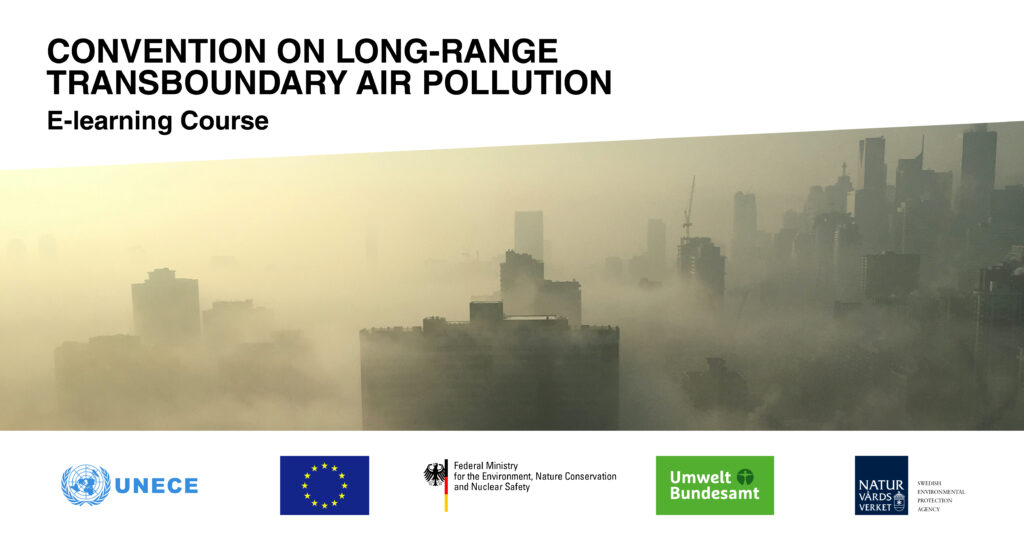Have you ever wondered what causes air pollution? Are you interested in learning about the effects of air pollution on your health and the environment? Do you want to learn how we can jointly work on cleaner air? If you replied yes to any of these questions, then you are encouraged to take the e-learning course on the UNECE Convention on Long-range Transboundary Air Pollution (Air Convention) and its protocols, which has been launched by UNECE and recently affiliated in both English and Russian by UN CC:Learn.
Air pollution impacts our health, environment and economy. Air pollutants come from multiple sources, such as traffic, industry and agriculture, and are transported over large distances and across borders. It is therefore paramount that we take action together — across sectors and national boundaries.
To improve air quality, UNECE Member States have been working successfully since 1979 to reduce air pollution in the region through the Convention on Long-range Transboundary Air Pollution. This cooperation has led to emission reductions, cleaner air, healthier forests and prevented premature deaths.

However, more needs to be done to achieve cleaner air within the UNECE region and beyond. The Convention has engaged in fostering cooperation between regional initiatives around the world and shared the Convention’s experience and lessons learnt with a view to advancing a shared response to addressing air pollution globally.
To assist countries in effectively addressing air pollution and improve air quality management, the new affiliated e-learning course aims to raise awareness about air pollution and its effects, ways to prevent and reduce harmful emissions, and the Convention and its protocols as an international framework for cooperation on cleaner air. The course was developed with contributions from the European Union, Germany, and Sweden.
Who should take this course?
The course is primarily designed to build the capacities of policymakers, government officials, staff from intergovernmental/non-governmental organizations, private sector professionals, students/academia, and other stakeholders. In particular, this course will be useful for those who cooperate within the Convention framework or those who wish to do so. Taking this course should enable learners to contribute to, and ultimately drive forward, actions on cleaner air.
Learning objectives
The course features four distinct modules that aim to equip participants with the knowledge and resource materials to understand the main concepts in air pollution management, the basic principles of the Convention, and Parties’ obligations under the Convention and its protocols. The course is self-paced and can be completed according to the schedule of the learner. Each module uses a mix of learning tools and features engaging content with clear storylines, complemented by videos, interactive features, relevant tools, and links to additional resources.
After completing the course, learners will be able to:
- Identify key air pollutants and their sources and effects
- Recall measures to reduce and prevent air pollution
- Recognize the value of the Convention as a framework for international cooperation to reduce air pollution
- Define basic principles under the Convention and its protocols
- Explain the basic obligations under the Convention’s protocols
- Identify the key stakeholders and processes under the Convention and its protocols
Certification and evaluation
To successfully complete the course and gain a Certificate of Completion, participants can take an end-of-course assessment. Once the certification criteria have been met (passing score 70%), and after completing a course evaluation form, participants will be able to download their certificate from the course’s webpage.
Affiliation programme
The UN CC:Learn affiliation programme highlights high-quality e-learning products on climate change developed by recognized institutions outside the framework of the UN CC:Learn programme / without support from the UN CC:Learn Secretariat, in accordance with specific affiliation criteria. The objective of the UN CC:Learn affiliation programme is to enhance global climate literacy through dissemination of high-level learning products that complement UN CC:Learn resources.

